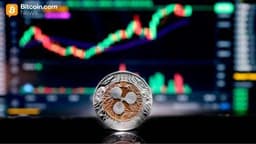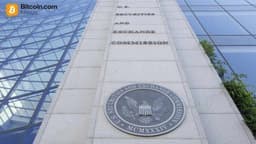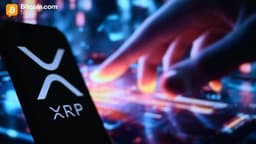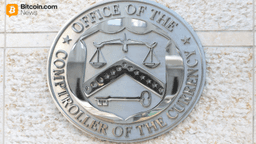UMA (UMA)
Loading...
Loading...

UMA is an optimistic oracle and dispute arbitration system operating as a groundbreaking decentralized truth machine. Utilizing an optimistic oracle, UMA records verifiable truths or data on the blockchain, creating a robust ecosystem for decentralized finance (DeFi). Users propose statements as truths, supported by a bond that rewards anyone who can successfully dispute them. If no challenges arise during the designated period, the statement is accepted as true. The UMA token is integral to the platform, empowering holders to govern contract types, asset support, and system upgrades. It also serves in the Data Verification Mechanism (DVM), where UMA token holders fulfill price requests during contract disputes, significantly minimizing reliance on on-chain price data and enhancing the security and scalability of DeFi interactions. The first contracts built on UMA are priceless synthetic tokens, ERC20 tokens that track various assets while reducing the need for frequent oracle price inputs. This innovative architecture allows for diverse applications, including governance, prediction markets, insurance, and cross-chain communication, positioning UMA as a versatile tool within the digital asset landscape. The Risk Labs Foundation backs the UMA project, emphasizing the creation of fair and accessible global markets. Token holders engage in community governance and can earn rewards by correctly voting on disputes, thus increasing their ownership and participation in the protocol. Overall, UMA represents a significant advancement in decentralized finance, aiming to streamline the creation and execution of financial contracts in a secure and efficient manner.
UMA is a decentralized protocol on the Ethereum blockchain that records verifiable truths on the blockchain, serving as a decentralized truth machine.
UMA tokens can be purchased on the most popular cryptocurrency exchanges, including Binance, Coinbase, Kraken, Gate.io, and OKX. Decentralized options include DEXs like Uniswap and Balancer.
UMA tokens can be stored in wallets that support Ethereum-based tokens, such as Bitcoin.com Wallet, MetaMask, or Trust Wallet. These wallets provide secure storage and can be connected to the UMA DApp to enable voting and other functionalities.

U.S. crypto regulation is pivoting fast as the CFTC scraps legacy guidance, signaling a friendlier, clearer framework that could unlock broader market access, reduce compliance friction and accelerate digital asset integration across American financial markets.

Ripple finalized its Rail acquisition, advancing Ripple Payments into a unified, compliant stablecoin platform designed to streamline global B2B money movement, expand enterprise adoption, and deepen real-world utility across digital and fiat rails.

Wall Street’s market infrastructure edged closer to tokenization after DTCC secured SEC no-action clearance, enabling tokenized securities with full legal protections and custody standards, signaling regulatory comfort and accelerating institutional adoption across U.S. capital markets.

Institutional-grade infrastructure is expanding XRP beyond payments as regulated wrapped XRP launches with deep liquidity, enabling cross-chain DeFi activity, new trading pairs, and broader utility across major blockchains through Hex Trust.

Federal regulators moved crypto deeper into U.S. banking as the OCC conditionally approved five digital-asset trust banks, signaling growing confidence in federally supervised crypto custody, payments and blockchain-based financial services.

UMA tokens serve as governance tokens within the UMA ecosystem. Token holders can stake their UMA to participate in the voting process, earning rewards for accurate and honest voting, which helps maintain the integrity and reliability of the oracle system.
Investing in UMA offers exposure to decentralized finance and synthetic assets. However, as with any investment, potential investors should conduct thorough research and consider market volatility before investing.
To participate in UMA's governance, you can stake your UMA tokens and engage in the voting process on disputes or proposals within the network. Accurate and honest voting is rewarded, incentivizing active participation.
UMA's Optimistic Oracle operates on an 'optimistic' principle, where data is assumed correct unless disputed. A statement is proposed along with a bond; if undisputed during the challenge period, it's accepted as true. If disputed, UMA token holders vote to resolve the dispute, ensuring data integrity.
UMA's Optimistic Oracle provides a flexible and efficient solution for bringing real-world data onto the blockchain. Its 'optimistic' approach reduces the need for continuous verification, lowering costs and improving scalability for decentralized applications.